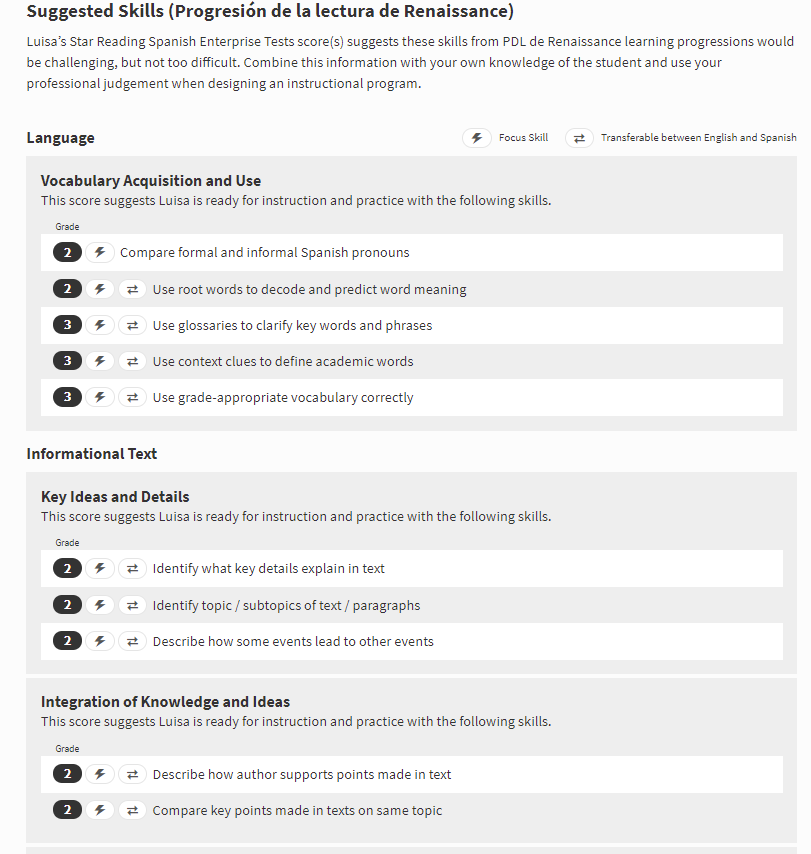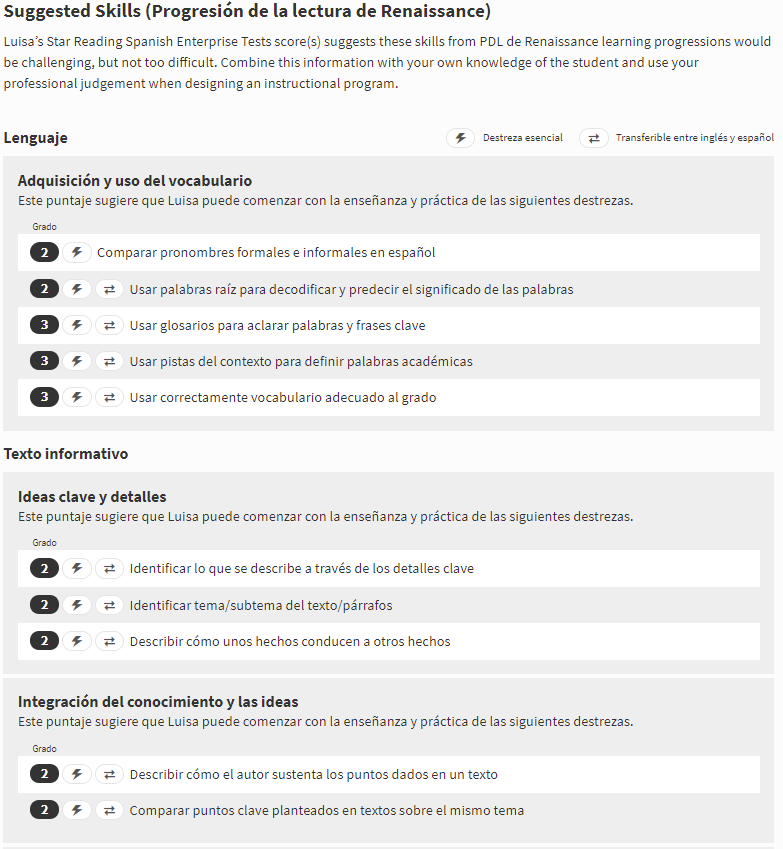Transferable skills are now identified in Star Spanish
Last December, we announced that Focus Skills are now included in the Star Spanish Instructional Planning Reports. For those not familiar with Focus Skills, Renaissance identifies these skills within the learning progression as the building blocks of learning in reading and math. These skills are the prerequisites for future learning.
So, what’s new? We’re happy to announce that transferable skills are now also included on the Star Spanish Instructional Planning Reports:


Transferable skills are defined as skills that can be transferred from one language to another. For example, word reading skills—such as letter knowledge, alphabetizing, and picture/word association—can be transferred between languages. Comprehension skills, such as understanding the main idea, making inferences, or predicting the outcome are also examples of transferable skills.
With respect to English and Spanish, skills considered non-transferable include phonics. For example, in Spanish, “j” is pronounced like “h” in English, and “h” is silent. Punctuation, in some instances, is not transferable. As shown in the example below, in Spanish there are no apostrophes used with possessives.
Spanish: la bicicleta del muchacho
English: the boy’s bike
Educators with an understanding of transferable and non-transferable skills will be able to help emergent bilinguals (also known as English Learners) to make sense of language not by focusing on the differences between languages, but on the languages’ commonalities.
For more information, download our guide to the Progresión de la lectura de Renaissance. The guide describes the learning progression development process, including how it is authentic to the pedagogy for Spanish reading, represents the set of skills a student needs in order to achieve success in Spanish reading through grade 12, and is empirically validated based on assessment data.